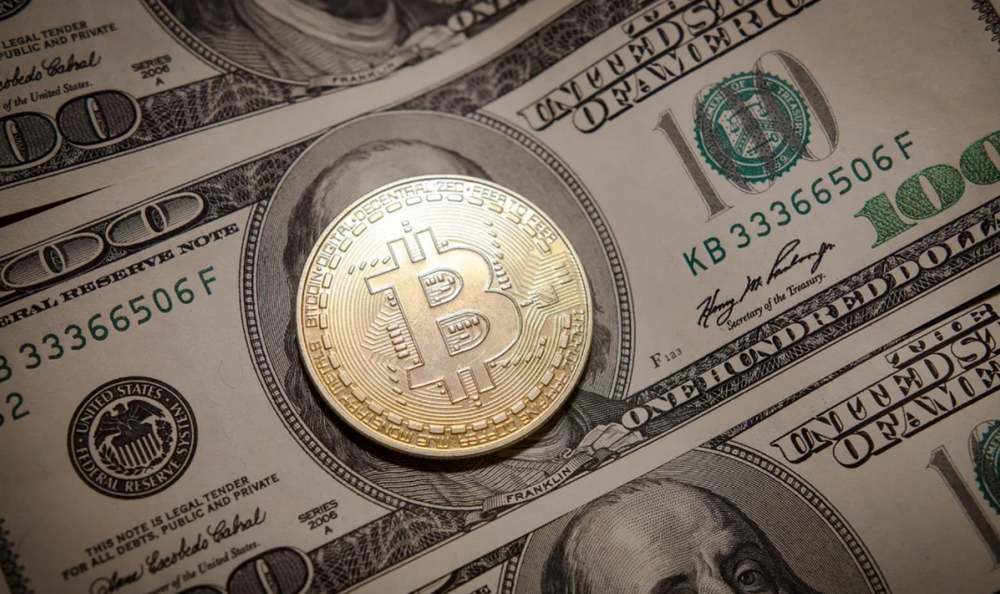Viewpoint: After halving, the Bitcoin network security model may need to be adjusted
One of the key features of cryptocurrencies such as Bitcoin based on blockchain is its immutability. Although Bitcoin's PoW network model is not the best scalable solution, it has consolidated its strong and secure form of registration transaction. In such an ecosystem, transaction fees, available computing power, profitability, etc. are associated with its greater security narrative and play a role in preventing such as 51% attacks on the network Indispensable role.

Source: Pixabay
In the latest episode of the “Chain Reaction” podcast, Dan Held, business development director of Kraken Digital, highlighted issues related to the Bitcoin security model and the role of transaction fees in the ecosystem. According to Held, in the next 30 days, Bitcoin will experience its third block reward halving, which may pose a security risk. He pointed out,
- Viewpoint | Why is Ethereum a true representative of open finance?
- Popular Science | Auditable security and approximate activity of Casper FFG
- Is the crypto lending market a time bomb?
"In the long run, Bitcoin's security is the most important. Whether its security model can withstand attacks. One of the core parts is to focus on block rewards. It consists of block subsidies and transaction fees. We should review transactions Whether the fee will replace block subsidies in a meaningful way and whether it is enough to ensure the security of the network. "
He emphasized that, generally speaking, when it comes to Bitcoin and cryptocurrencies, users will always migrate to a more secure blockchain. He added:
"People will naturally tend to have the highest security blockchain. Trading through the block space will involve a lot of fees. When we pay special attention to the transaction flexibility of Bitcoin and the Bitcoin block space, people are What are they willing to pay when trading in space? "

Source: coinmetrics.io
Interestingly, according to the network data from coin metrics, bitcoin transaction fees have been rising over time. By comparing similar fees users pay for other valuable asset storage, Held also explained how much transaction fees people are willing to pay for Bitcoin. He concluded,
"Bitcoin is actually a better asset than other assets. I mean, for real estate, not only do you have to pay these transaction fees, but the assets you own are not replaceable, you need to pay maintenance costs, and the market liquidity is very Poor. So, in fact, you can claim that users are willing to pay higher amounts and transaction fees. "
A few days ago, Bitcoin Fork Bitcoin Cash (BCH) experienced its first halving. It is shocking that BCH's computing power and profitability have collectively declined after halving, leaving hidden dangers for network security damage. Since Bitcoin is about to halve the block reward and the miner's reward will decline, it may rely more on transaction fees when verifying transactions on the blockchain.
We will continue to update Blocking; if you have any questions or suggestions, please contact us!
Was this article helpful?
93 out of 132 found this helpful
Related articles
- Micro-fiction | Economic Reversion and Human Brain Mining Machine in 2049
- Cobo second generation hardware wallet new product launch conference | Chain Node Live Room
- Lose user trust? "Black Thursday" has reduced BitMEX bitcoin holdings by nearly 40%
- Miners rushed to switch networks before Bitcoin halved, and Bitcoin's computing power continued to rise
- Completely solve the liquidity problem? Staking new game attack, traditional PoS mining pool
- Dialogue MOV | DeFi2020-How to move from open application to open ecosystem?
- Data: Bitcoin network activity is strengthened again, investors may start buying before halving






